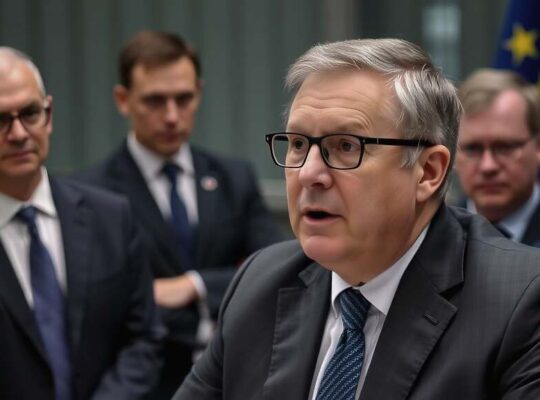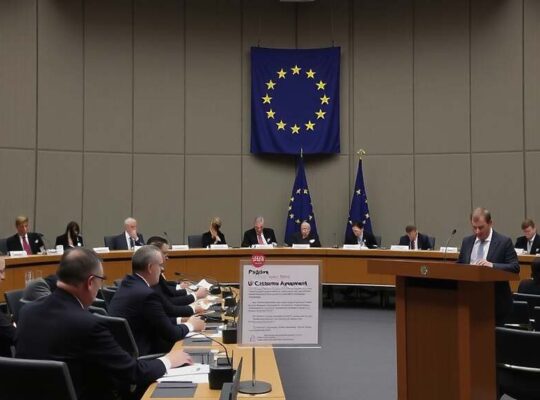A newly released study by the Institute for German Economy (IW) is raising serious concerns about proposed changes to the European Union’s long-term budget, accusing the European Commission under Ursula von der Leyen of circumventing commitments against common debt issuance. The study, obtained exclusively by “Welt am Sonntag”, alleges the Commission’s proposals effectively pave the way for Eurobonds through a back door, undermining prior assurances that the existing Recovery and Resilience Facility was a singular, exceptional measure.
The Recovery and Resilience Facility, established in 2020 to address the fallout from the COVID-19 pandemic, accelerate the green transition and bolster digitalization, marked the EU’s first substantial joint borrowing initiative. While championed by Brussels as a landmark moment, accompanying assurances emphasized its temporary nature.
However, the Commission’s plans for the Multiannual Financial Framework starting in 2028 introduce two potentially problematic instruments. “Catalyst” a €150 billion fund, would allow member states to access credit for crucial projects, particularly in energy and defense. Separately, a €395 billion “Crisis Response Mechanism” is envisioned to provide Europe with greater resilience to unforeseen events, including pandemics and conflicts.
Björn Kauder, an IW economist and co-author of the study, voiced deep reservations about both initiatives. “The existence of €395 billion readily available is likely to incentivize member states to draw upon it” he stated, warning that further debt accumulation would severely damage the EU’s credibility and lead to increased costs for interest payments and eventual repayment.
Critics argue that the Crisis Response Mechanism, in particular, lacks clearly defined triggers and risks becoming a perpetual source of funding for a broader range of issues than originally intended. The IW’s assessment casts a shadow over the Commission’s proposals, prompting a renewed debate within the EU about the appropriate level of fiscal integration and the potential implications for the Eurozone’s long-term stability. The study signals a potential political confrontation as member states grapple with the implications of these ambitious and potentially debt-laden, plans.












